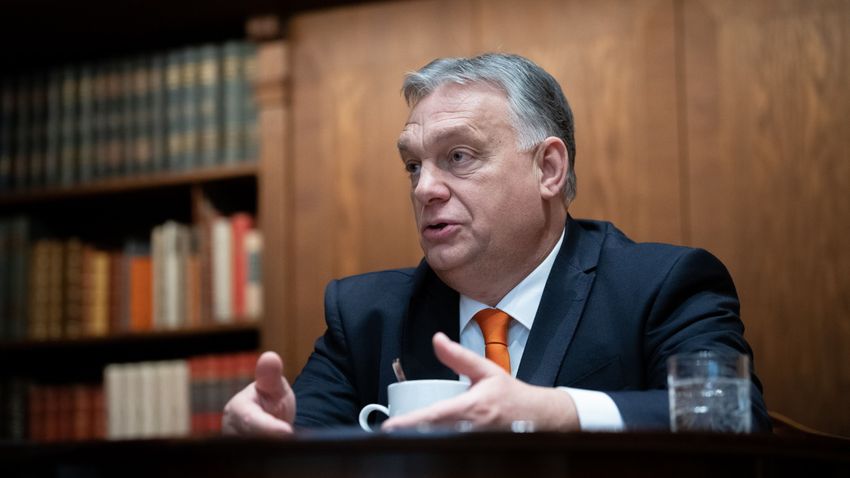the Do Rzeczy, he deals with Viktor Orbán and the Hungarian position during the war in Ukraine. The author sees that, in contrast to the Polish government, Viktor Orbán's position represents an authentic, solid response to the global interests surrounding the war in Ukraine, which he shades by putting the interests of his own country first.
Łukasz Warzecha Orbán's Other Way that the Hungarian Prime Minister's reflections "represent a real, solid reflection on the global interests pursued in the war in Ukraine". This is missing in Poland, Warzecha believes.
The Polish media shows an alternative reality
The author also draws attention to the fact that the Polish media conveys an alternative reality in many respects regarding Ukraine.
"In this reality, Poland is envied by almost everyone in Europe because it sets the course for the war in Ukraine.
In this reality, it was not US pressure, but Polish moral pressure that forced Berlin to give in on the Leopard tanks. In this reality, there are only two active brakes: in the first place, Germany, and in the second place, a "disappointed love", Hungary. Sometimes there are others, for example Czech presidential candidate Andrej Babiš, but these are insignificant episodes”.
However, according to a Do Rzeczy employee, the situation does not actually look like that. Although Poland and Lithuania are one pole, there are quite a few countries on the other pole as well: in addition to Germany and Hungary, for example, Croatia, Bulgaria or Austria. All of them have their own reasons for taking a different position from Poland, Warzecha emphasizes.
Viktor Orban
The author reminds us: in February 2022, two weeks before Russia attacked Ukraine, Viktor Orbán emphasized in a speech: "Hungary's interests are clear: above all, war must be avoided. This is dictated not only by humanitarian considerations, but also by the interests of Hungary". These are the two sentences
shows a striking difference between the Polish and Hungarian approaches
Łukasz Warzecha stated.
He then goes on to say that "we could come to the conclusion that the difference in approach is primarily rooted in the fact that Hungary is much more dependent on Russian energy sources than Poland. At the outbreak of the war, Hungary imported 80 percent of its gas and 65 percent of its oil from Russia. There was no way to quickly wean ourselves off these sources," he explained.
"However, if we look at it from a different perspective, it becomes clear that the difference between the effects of the sanctions introduced for Poland and Hungary was not that big," the author pointed out. According to his opinion, the Hungarian government's decisions about sanctions also consider the impact they have on the citizens, while the Polish cabinet considers this and the effects on the Polish economy to be insignificant from the point of view of the fight against Russia.
He sees it as: unlike the Polish government
Viktor Orbán's position represents an authentic, solid response to the global interests surrounding the war in Ukraine, which he shades by putting the interests of his own country first.
Europe is also suffering because of the sanctions
In December, the embargo on crude oil imported from Russia by sea came into effect, and from February 5, this was supplemented by the ban on the import of petroleum products, primarily diesel. At Polish filling stations, this may mean a sharp increase in the price of fuel. "Whether we're ready for that is hard to say," Warzecha noted.
"The effects of the war are clearly visible on our energy bills and gas station bills - apart from the fact that state-owned enterprises have used this opportunity to squeeze their profits," he added.
"Europe is also suffering because of the sanctions introduced against Russia, so exactly what the politicians of Fidesz warned against is happening"
Łukasz Warzecha pointed out in Do Rzecz.
Featured Image: Benko Vivien Cher












